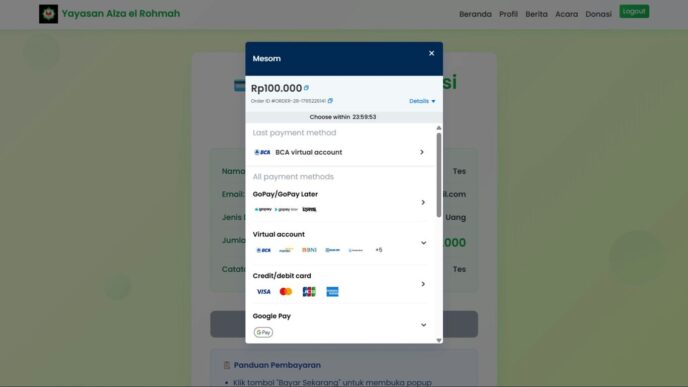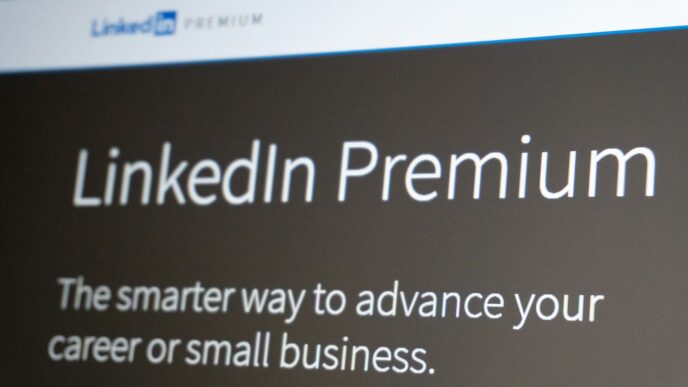As we step into 2025, the landscape of marketing continues to evolve rapidly, making it crucial for businesses to stay ahead of the game. One way to do this is by adopting an all-in-one marketing CRM. These platforms not only streamline customer interactions but also provide powerful tools for managing leads, tracking campaigns, and analyzing data. In this article, we’ll explore the essential features of an all-in-one marketing CRM, how it can transform your marketing efforts, and the future trends shaping CRM technology.
Key Takeaways
- An all-in-one marketing CRM centralizes customer data for better management and engagement.
- Personalized marketing campaigns driven by data can significantly boost customer retention and sales.
- The CRM market is growing, with new technologies and integrations enhancing the capabilities of these tools.
Essential Features of All-in-One Marketing CRM
An all-in-one marketing CRM is more than just a database; it’s the central hub for all your marketing activities. It needs to have certain features to actually help your business grow. It’s about streamlining processes, understanding your customers better, and making smarter decisions. Let’s look at some must-have features.
Modern Must-Have Capabilities
Think of a modern CRM as your marketing command center. It needs to do more than just store names and numbers. Here are some things I think are important:
- AI-powered Insights: The CRM should use AI to analyze data and give you actionable insights. This could include AI-driven leads scoring to help you prioritize your best prospects.
- Multi-Channel Communication: Customers interact with businesses on many platforms. Your CRM needs to handle email, SMS, social media, and more, all in one place. This multi-channel automation ensures you’re reaching customers where they are.
- Customizable Dashboards: You need to be able to track what matters most to your business. Robust reporting dashboards let you monitor pipeline performance and other key metrics.
Integration Ecosystem and API Support
Your CRM shouldn’t be an island. It needs to connect with the other tools you use every day. A fragmented workflow can really slow things down. Here’s why integration is key:
- Seamless Data Flow: The CRM should integrate with your email marketing software, social media platforms, and other business applications. This ensures that data flows smoothly between systems, reducing the need for manual data entry.
- Open API: An open API allows you to connect the CRM with custom applications or less common tools. This flexibility is important for businesses with unique needs.
- Centralized Information: When your CRM integrates with other systems, it becomes a central repository for all customer information. This gives your team a complete view of each customer, leading to better interactions and improved cross-departmental visibility.
Transforming Marketing Campaigns with CRM
Personalization and Targeting
Okay, so, think about how annoying it is to get ads for stuff you’d never buy. That’s where a CRM comes in. It’s not just about having a list of names; it’s about knowing who those people are. With a good CRM, you can really nail audience segmentation. It lets you divide your customers into groups based on all sorts of things – what they like, what they bought before, where they live, you name it.
- Crafting relevant messages: Once you know your audience, you can make ads and emails that actually speak to them. No more generic blasts!
- Better ad spend: Stop wasting money showing ads to people who will never be interested. Target the right folks, and you’ll see a much better return.
- Improved customer experience: Customers appreciate it when you understand their needs. Personalization shows you’re paying attention.
Data-Driven Decision Making
Marketing used to be a lot of guesswork, right? Throw something at the wall and see if it sticks. But with a CRM, you’ve got data. Tons of it. And that data can help you make smarter choices. You can build data-driven campaigns, track how people are interacting with your brand, and really see what’s working and what’s not.
- Track everything: From website visits to email opens to social media engagement, a CRM lets you track it all.
- Identify trends: See what products are popular, what messages are resonating, and what channels are performing best.
- Optimize campaigns: Use the data to tweak your campaigns in real-time. Stop doing what’s not working, and double down on what is.
Basically, a CRM turns your marketing from a shot in the dark to a laser-focused strategy. And that’s good for everyone.
The Future of CRM Technology in Marketing

Market Growth and Industry Leaders
The CRM market is seriously booming. Some analysts think it’ll hit $163.16 billion by 2030. That’s a lot of growth! You’ve got your big players like Salesforce and HubSpot still leading the pack, but keep an eye on the smaller, more nimble companies. They’re bringing fresh ideas to the table, especially when it comes to AI and really specific industry needs. These smaller vendors focus on industry-specific workflows, and faster onboarding.
Innovations Shaping CRM Solutions
CRMs aren’t just databases anymore. They’re becoming intelligent hubs that automate tasks and offer personalized experiences. Think about it:
- AI-powered assistants that handle follow-ups and personalize emails. This frees up your sales team to focus on closing deals.
- Augmented reality (AR) could transform product demos, letting customers interact with products in a whole new way. No more boring presentations!
- Better security is also a big deal. With all the data CRMs hold, keeping it safe is more important than ever.
It’s all about making things easier and more effective for both businesses and customers. The goal is to improve response times and customer satisfaction through centralized data.
As we look ahead, CRM technology is set to change how businesses connect with their customers. With new tools and features, companies can better understand what their customers want and need. This means more personalized experiences and stronger relationships. To learn more about how CRM can help your marketing efforts, visit our website today!
Wrapping It Up
In conclusion, picking the right marketing CRM can really change the game for your business. It’s not just about keeping track of leads; it’s about building real connections with your customers. With the right tools, you can streamline your processes, boost your marketing efforts, and ultimately drive growth. So, as you look ahead to 2025, take the time to find a CRM that fits your needs. Whether you’re a small startup or a larger company, there’s a solution out there for you. Don’t wait too long—get started on your journey to better customer relationships and increased revenue today!














